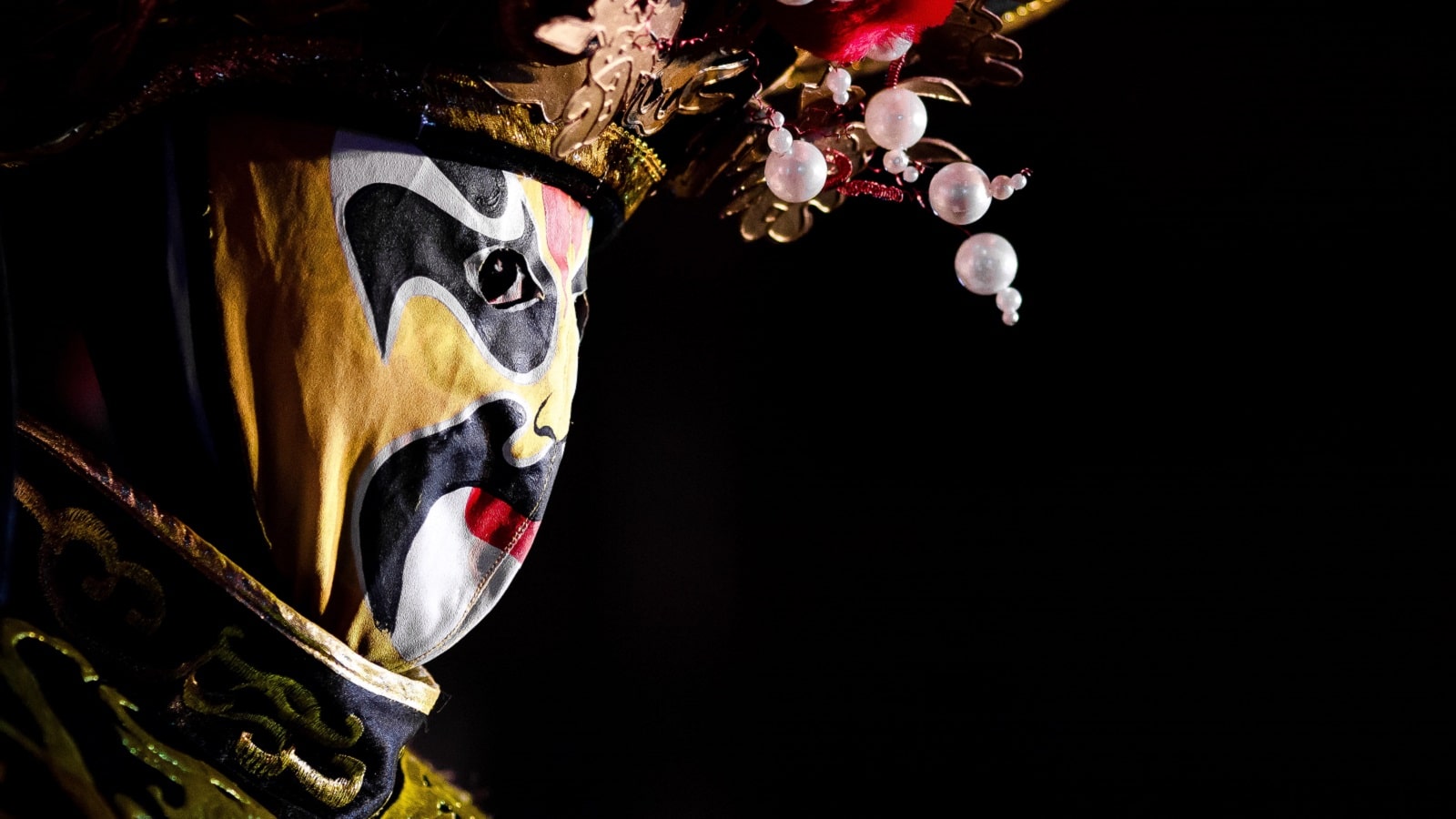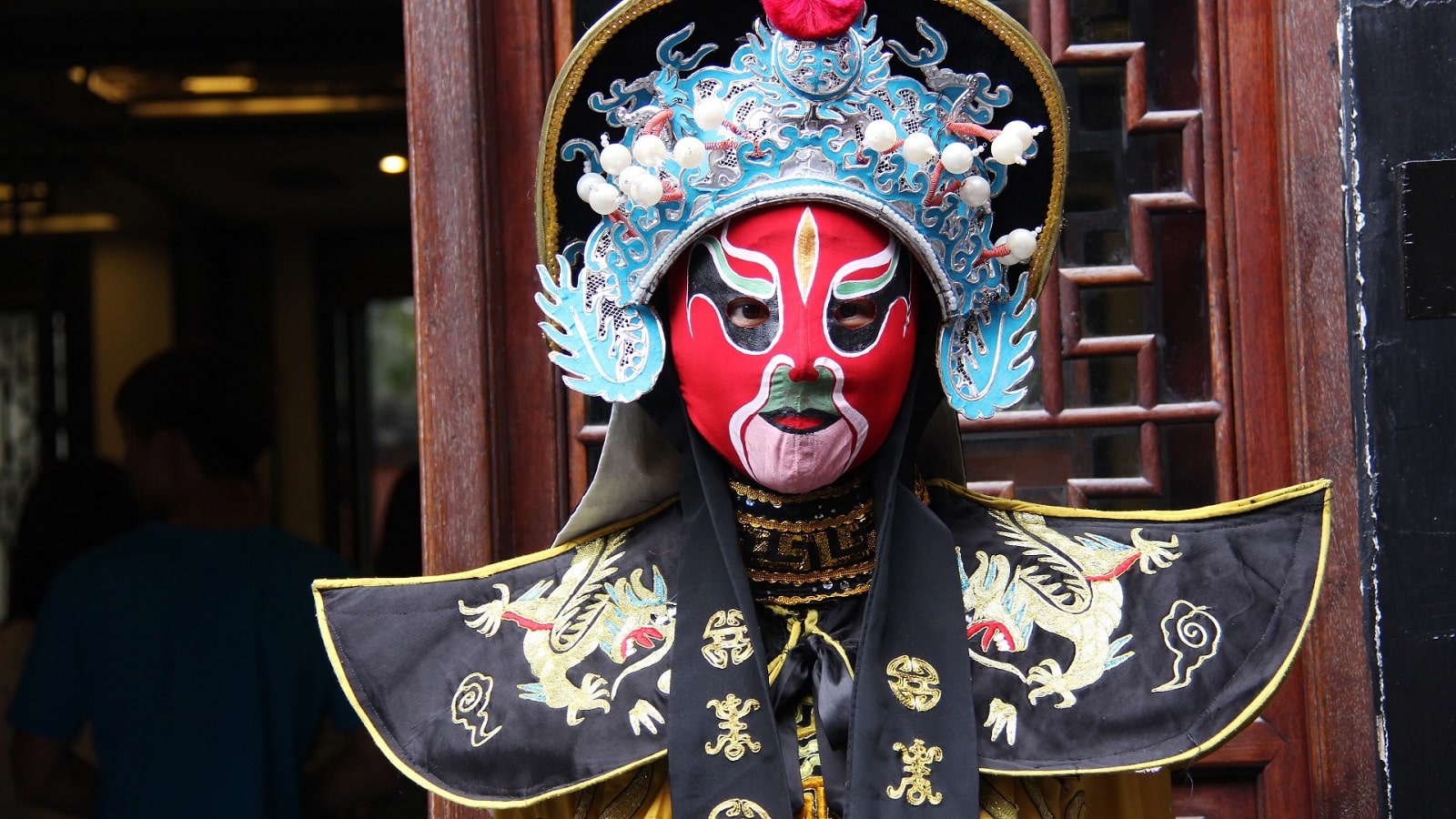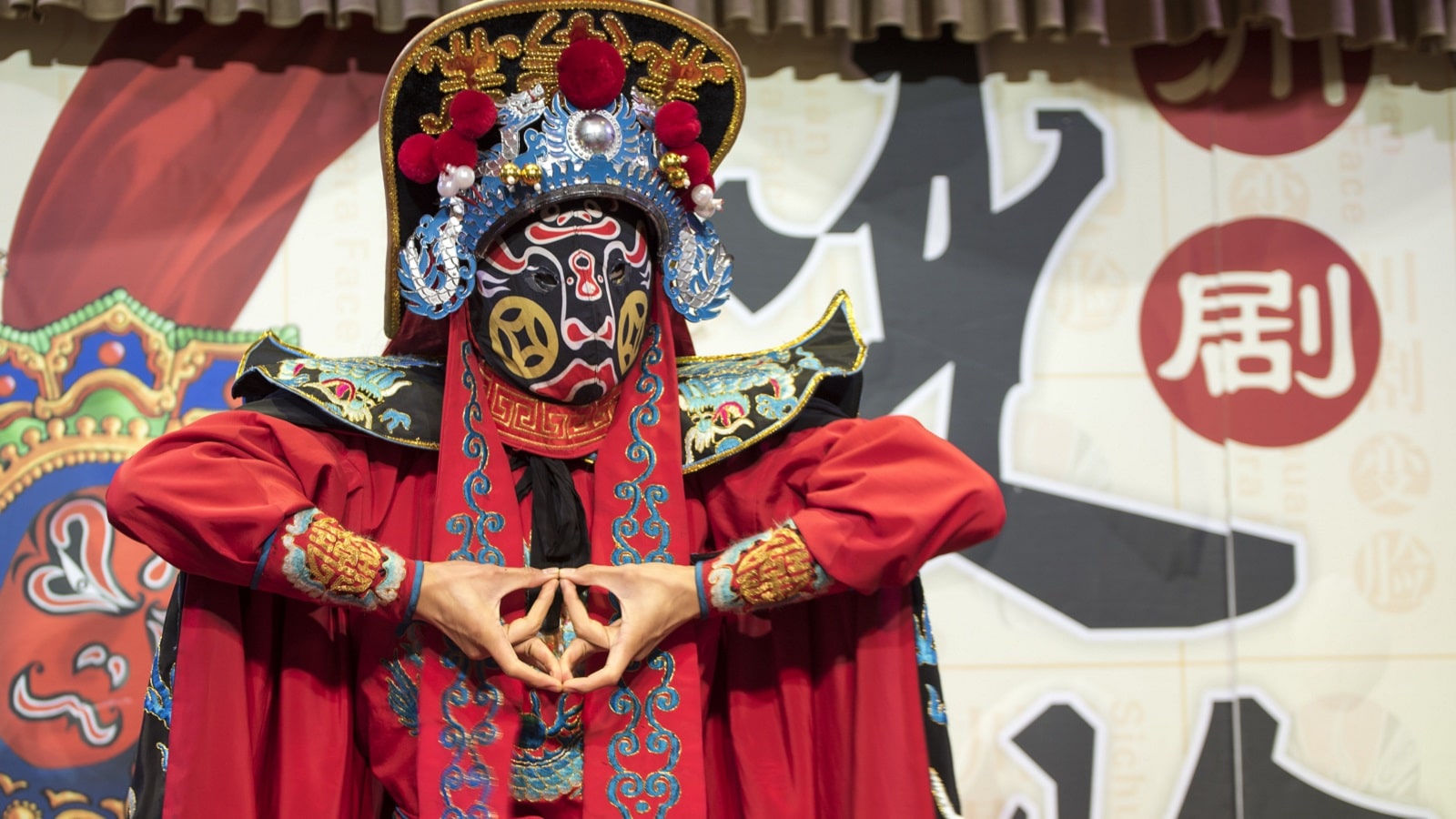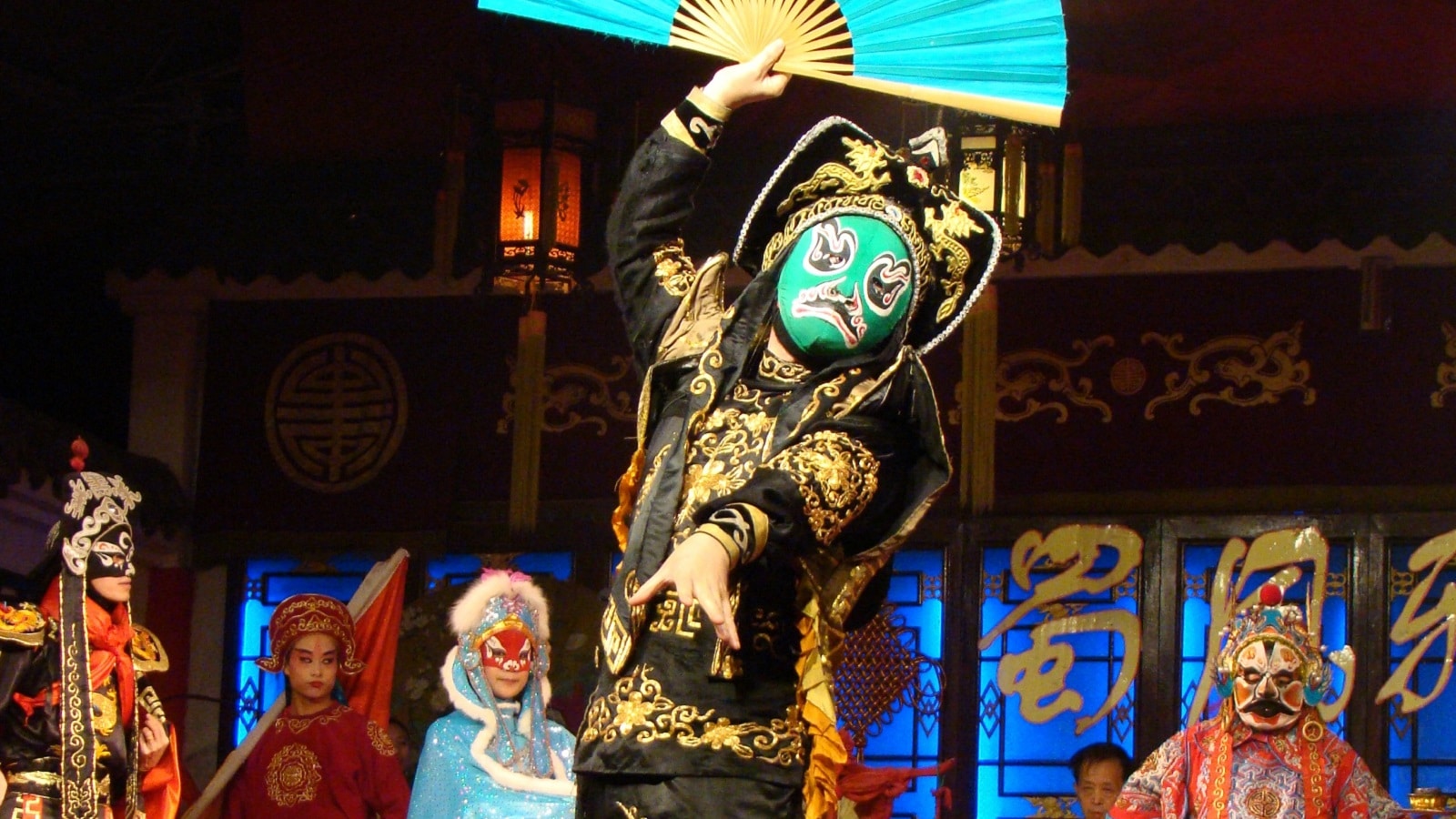
The Changing Faces of Sichuan Opera
The Changing Faces
of Sichuan Opera
Enjoy the ancient Chinese dramatic art of Sichuan Opera on an enlightening excursion. During this
skillful and amusing performance, watch the magic of the face changing masters
who seemingly change their expressions in the blink of an eye.
WHY THIS TOUR?
Face changing is the highlight performance of the Sichuan Opera. The origins of this performance are linked to an ancient time when people painted their faces to scare and drive away wild animals. Sichuan Opera has developed this practice into an art form.
This type of opera has its roots at the end of the Ming Dynasty (1368-1644) and the start of the Qing Dynasty (1644-1912) when art and literature flourished. Performers can change over 10 masks in less than 20 seconds through techniques such as raising a hand, or swinging a sleeve, thereby portraying different emotions in an instant. Sichuan Opera needs to be seen to be believed. It is truly one of China’s greatest cultural performances.



TRAIL ITINERARY
19:30 - 21:30
The driver will collect you from the hotel and take you to the venue for the evening show of Sichuan Opera. Take your seat and get ready for a skillful and amusing theatrical performance with brightly coloured costumes, acrobatics, circus-like elements and dramatic music.
Throughout the show, look out for three main types of face changes. The Pulling Mask routine is the most complicated. Multiple masks are hung with a silk thread and lightly pasted to the face one by one. With a flick of the silk thread, the performer is able to magically whisk away the masks as the drama develops. During the Wiping Mask routine, cosmetic paint is applied to the face to portray an emotion or expression. The Blowing Mask routine involves boxes of gold, silver and coloured powder. When the performer blows at the powder, it puffs onto the face and creates a different effect. Blink and you might miss this incredible spectacle!
At the end of the performance, the driver will take you back to the hotel.



